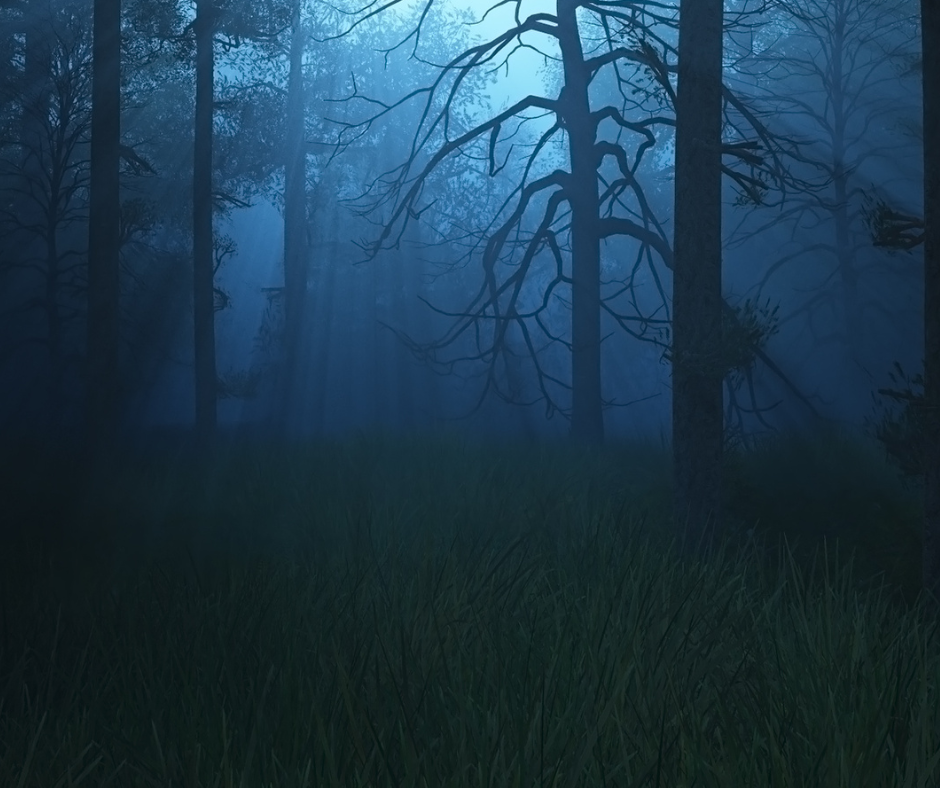Tom Titus

I felt the storm in my body. The spinning energy generated by that colossal pinwheel of wind and moisture coming onshore moved through my being the way a willow rod bends in the hands of a water dowser. My battered left knee began to ache. This was a warm storm, a gusting exhalation that began sometime in the late-December night. I opened my bedroom window a few inches to give the wind-driven rain room to slip its animal fingers inside and massage my sleepless ears.
Daylight. More wind and rain. I was in no hurry to leave for a three-day venture to Upper Smith River, a trip I had planned for two weeks to decompress in the middle of the Holidaze. Finally, the truck was loaded with the all-important chainsaw, tools for the house renovation, and a box of food. My utility trailer was hitched to salvage downed wood. The pickup and I headed southwest toward Lorane into the teeth of the gale. The truck felt the storm, too. Wind pummeled the cab on straight stretches where normally I would have pressed my right foot into the accelerator and let out the reins. We rarely made highway speed.
The road that snaked over the forested ridge from the Siuslaw River was littered with a reckless cast of Douglas-fir boughs. Someone was ahead of me; a windthrow fir perhaps 150 years old was bucked into six-foot pieces and rolled off the pavement. Further along, a pair of young Western Hemlocks leaned across the road at a 45-degree angle, their fall arrested by a 12-foot bank on the right side of the road. Enough limbs had been removed from the underside of the trunks so that the truck and I could slide beneath them.
Below the two unfortunate hemlocks, a second-growth fir snag blocked the road. Sheets of rain hurried me into full rain gear. For once, my chainsaw cooperated, the chain mercifully sharp. I bucked the dead trunk into firewood lengths and chucked them haphazardly into the trailer. My gloves and raingear were plastered with a stucco of wet sawdust. I climbed back into the cab without removing any of my clothes, strewing wood chips across the steering wheel, seat, and stick shift. Within all of this arboreal carnage, a future of firewood and lumber for the Johnny Gunter house came into focus. Owning a portable sawmill and chainsaw has transformed me into a storm-chasing salvage logger.
Eventually, the pavement wound precipitously down into the Upper Smith River Valley and mercifully out of phone service. About then I remembered that the house was electrified by 13 miles of aerial line. My chances of having power at the house were roughly the size of a winter gnat’s ass. Just before entering the driveway, the truck and I dodged another hemlock partially blocking Upper Smith River Road. Thankfully, the two-track to the house was mostly clear, and only required chucking a few large limbs over the bank.
True to expectations, the flow of kilowatts to the house was blocked somewhere upstream. Every switch and plug was dead. Given the strength of the storm and the small number of people serviced by this electrical line, the prognosis for power was dim. I fired up the woodstove, glanced at a full oil lamp on the living room shelf, and shrugged. At least the refrigerator would be silent.
My task on this trip was to begin replacing the rotten bathroom floor. Rain sang on the metal roof while I dragged the old toilet, tub, and vanity into the yard. Pieces of decayed subfloor and plywood were dismantled and hauled outside to the burn pile. Traces of the storm puffed upward through the gaping hole in the floor, cool drafts carrying the smell of mildew and unceasing entropy. A smidgeon of guilt for spending too much money on cordless power tools evolved into smug satisfaction.
Most of the time I manage to steer clear of delusion. This party would not last—not the batteries in my newfangled tools, not the storm, not the house, and certainly not I. Ironically, aging has removed any trace of nihilism. In these winter-shortened days of my ever-shortening years, replacing even a cracked toilet has become a compelling enterprise.
Late afternoon. The reckless weather still surged through my being, chasing its cold tail eastward. Rain song ceased. Battleship overcast fissured and became shot through with turquoise. The weather break motivated me to jog and walk up a road that switchbacked to the crest of the north ridge. From the top, I gazed down on gray pockets of fog nestled like nursing kittens into conifer canyons. Gusting wind dissipated into small breezes that huffed through the gaps in this emerald jumble of mountains. A bit of phone service dribbled in, and I called Kim to tell her I had arrived without incident. She asks little else of me on these wild-eyed solo adventures.
Back at the house, night did not fall. It rose from every undulation of rain-soaked earth, every wet furrow of bark, every needle pore. Dusk became the dark arms of Cailleach, goddess of winter, who enveloped everything in the meadow: the crumbling house, the leaning garage, the two collapsed outbuildings lying in chaotic heaps of weathered lumber above the driveway. I retreated inside. The click of a red Bic lighter set the oil lamp flaring into the living room with a faint exhalation of smoke and a whiff of burning petroleum. I used the lamplight and woodstove to cook a butternut squash-bacon-kale stir fry, then ate it directly out of the cast iron skillet. Afterward, my journal captured a few words in sloppy cursive.
Drowsiness overtook me too early in the evening, at least following the “normal” standards of life with electric lighting. When I extinguished the lamp, darkness became so complete that my eyes could no longer register the difference between open and closed. Arbitrary increments of time vanished. For an unmeasured moment, I sat on the precipice of night, grateful for legs dangling over the edge of infinity.






